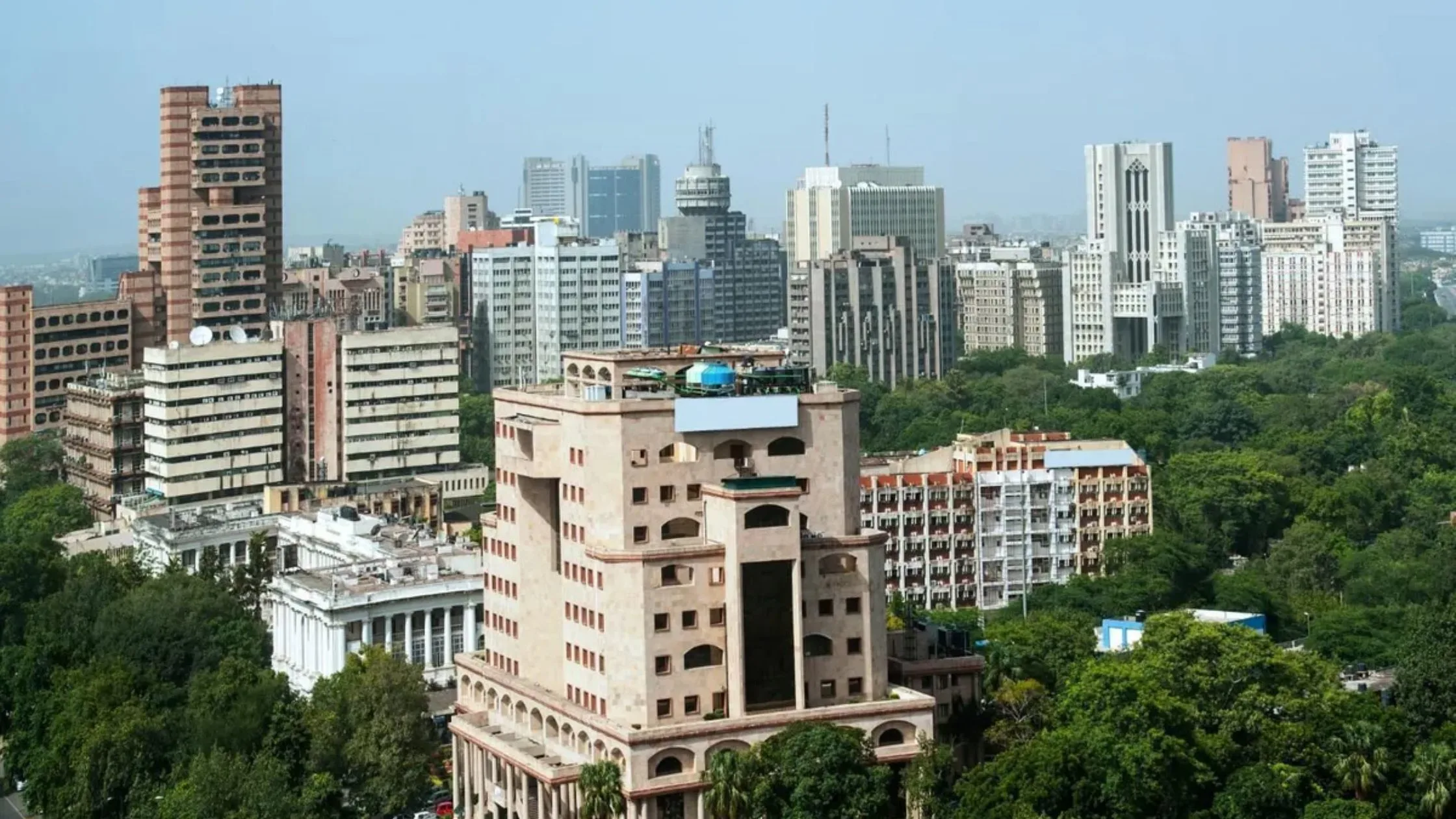Table of Content
▲
Prime Minister Narendra Modi has urged full compliance with the Real Estate (Regulation and Development) Act (RERA) because it will be vital for restoring confidence in India's housing market. During the PRAGATI meeting of May 28, 2025, he urged all state governments to ensure all eligible real estate projects are registered with RERA and, more importantly, to solve the homebuyers' issues, which had been postponed for years.
The message emphasizes the need to comply with RERA to ensure accountability, protect homebuyers, and bring stability to a sector that has historically been held back by project delays and disputes, a lack of transparency or accountability, and instances of fraudulent activity.
The Significance of RERA in Real Estate Regulation
The Real Estate (Regulation and Development) Act, introduced in 2016, marked a transformative shift in India’s real estate landscape. This landmark legislation aims to standardize practices, instill accountability, and safeguard homebuyers from malpractice. The key features of RERA include:
- Mandatory Registration: All real estate projects exceeding a certain size must register with RERA before advertising or selling.
- Transparency: Developers are required to disclose project details, including timelines, approvals, and financial plans, to buyers.
- Grievance Redressal: A dedicated mechanism to address homebuyer complaints in a timely and efficient manner.
- Accountability: Penalties for non-compliance ensure developers adhere to commitments, including timely delivery of projects.
By addressing the long-standing issues of trust deficit and lack of transparency in the housing sector, RERA has become a cornerstone of India's regulatory framework for real estate.
Also Read: Government Proposes Bill for Digital Property Registration: Key Insights
PM Modi’s Emphasis on Compliance
During the PRAGATI meeting, Prime Minister Modi highlighted the pressing need to enhance compliance with RERA provisions across states. His key points included:
1. Grievance Redressal Mechanism:
- The Prime Minister stressed the importance of improving the quality and timeliness of grievance disposal to ensure fairness and justice for homebuyers.
- He directed state chief secretaries to prioritize the complete resolution of complaints rather than merely reporting them as “disposed of” without meaningful outcomes.
2. Mandatory Registration of Projects:
- PM Modi pointed out inconsistencies in project registrations across states. For instance, while Maharashtra has a higher compliance rate, states like Uttar Pradesh lag significantly in registering eligible projects under RERA.
- He urged states to actively monitor and ensure all eligible projects comply with mandatory registration.
3. Accountability in Implementation:
- Highlighting instances of inefficiency and bureaucratic delays, the Prime Minister instructed states to hold regular reviews of RERA’s functioning. He also called for the deployment of resources to scrutinize builder websites and project details to detect non-compliance.
Challenges Facing RERA Implementation
Despite its potential to transform the housing sector, RERA faces several challenges that impede its effectiveness:
- Delayed Projects: One of the most significant issues is persistent delays in project completion, often leading to cost overruns and denying buyers access to their homes.
- Grievance Redressal Inefficacies: Many complaints are reported as resolved, even though buyers may not have received compensation or possession of their property.
- Inconsistent Adoption Across States: States have varying levels of compliance, with some failing to register eligible projects under RERA.
- Developer Resistance: Some developers seek to bypass RERA provisions by exploiting loopholes or engaging in malpractices.
PM Modi’s directives aim to address these systemic challenges and reinforce accountability at every level of the real estate ecosystem.
The Broader Implications of Strict Compliance
Strict adherence to RERA provisions offers multifaceted benefits that go beyond just restoring trust among homebuyers.
- Building Buyer Confidence:
Homebuyers can feel secure knowing their investments are protected under a robust legal framework. - Promoting Market Credibility:
Developers who comply with RERA gain a reputation for reliability and transparency, attracting more buyers and investors. - Timely Project Delivery:
Enforcing timelines reduces the socio-economic impact of delayed projects, ensuring buyers receive their homes as promised. - Boosting Economic Growth:
A well-regulated real estate market attracts domestic and international investments, contributing to overall economic development. - Minimizing Legal Disputes:
Clear rules and efficient grievance mechanisms reduce the likelihood of prolonged legal battles between buyers and developers.
Insights from the PRAGATI Meeting
The PRAGATI meeting also reviewed three major infrastructure projects worth over ₹62,000 crore. These projects spanned road transport, power, and water resources sectors across various states and union territories.
PM Modi highlighted how project delays—often caused by land acquisition hurdles, forest clearances, and bureaucratic inefficiencies—lead to cost escalations and deprive citizens of essential services. He emphasized that officers must proactively resolve such bottlenecks to ensure timely completion.
Additionally, the Prime Minister called for:
- Including atomic energy topics in school curricula to debunk myths about radiation.
- Developing training modules for civil servants to address land acquisition challenges.
- Improving water supply projects under the Jal Jeevan Mission through field inspections and actionable feedback.
The Way Forward: Strengthening RERA Compliance
To ensure RERA fulfills its potential, stakeholders must align their efforts towards these actionable steps:
- Streamlining Grievance Handling: States must develop user-friendly platforms to enhance complaint resolution efficiency.
- Improving Monitoring Systems: Deploying dedicated teams to audit project registrations and compliance records.
- Capacity Building: Training regulatory authorities and officers to handle RERA-related tasks effectively.
- Enhancing Public Awareness: Educating buyers and developers about their rights and responsibilities under RERA.
Also Read: Beyond the Metros: Tier II Cities Redefining India's Commercial Real Estate Boom
Conclusion
Prime Minister Modi’s focus on strict compliance with RERA provisions underscores the government’s commitment to reforming India’s housing sector. By addressing project delays, improving grievance redressal mechanisms, and enforcing mandatory registrations, RERA can emerge as a beacon of transparency and accountability.
Restoring trust in the housing sector is not merely a regulatory requirement—it is a socio-economic imperative that affects millions of Indian families. Stakeholders, from state governments to developers, must collaborate to ensure RERA achieves its transformative potential and paves the way for a more trustworthy and efficient real estate market.
Follow AquireAcers Whatsapp Channel to Stay Updated With The Latest Real Estate News







_1771410929.webp)
Ans 1. The Real Estate (Regulation and Development) Act (RERA) is a regulatory framework introduced in 2016 to ensure transparency, accountability, and fairness in India's real estate sector. It protects homebuyers, enforces project timelines, and addresses malpractices by developers.
Ans 2. Prime Minister Modi has highlighted RERA compliance to rebuild trust in the housing market, ensure timely project completion, and enhance the grievance redressal system to protect homebuyers.
Ans 3. Enhance the quality and timeliness of grievance resolution. Ensure mandatory registration of all eligible real estate projects under RERA. Conduct regular reviews and deploy resources to monitor developer compliance.
Ans 4. PM Modi reviewed infrastructure projects worth ₹62,000 crore in sectors like road transport, power, and water resources. He emphasized resolving bottlenecks like land acquisition and bureaucratic inefficiencies to ensure timely completion.
Ans 5. Developers gain credibility and attract buyers by complying with RERA provisions. It also helps streamline project approvals and ensures accountability, fostering trust in the sector.
Ans 6. By enforcing accountability and timely delivery, RERA ensures housing security for families, minimizes financial stress for buyers, and contributes to the real estate sector's role as a major economic driver.
Ans 7. To create a transparent, trustworthy, and efficient housing market that meets the aspirations of homebuyers while fostering economic growth.
Ans 8. RERA offers homebuyers: Legal protection for investments. Transparency in project details. Timely possession of properties. Efficient grievance resolution mechanisms.